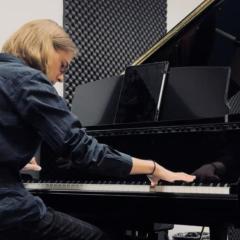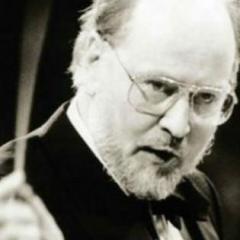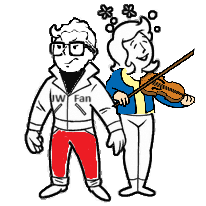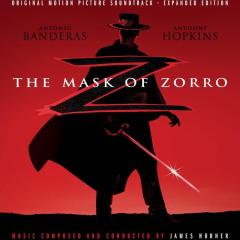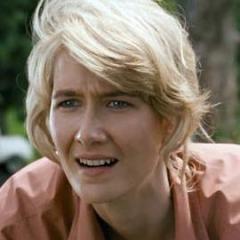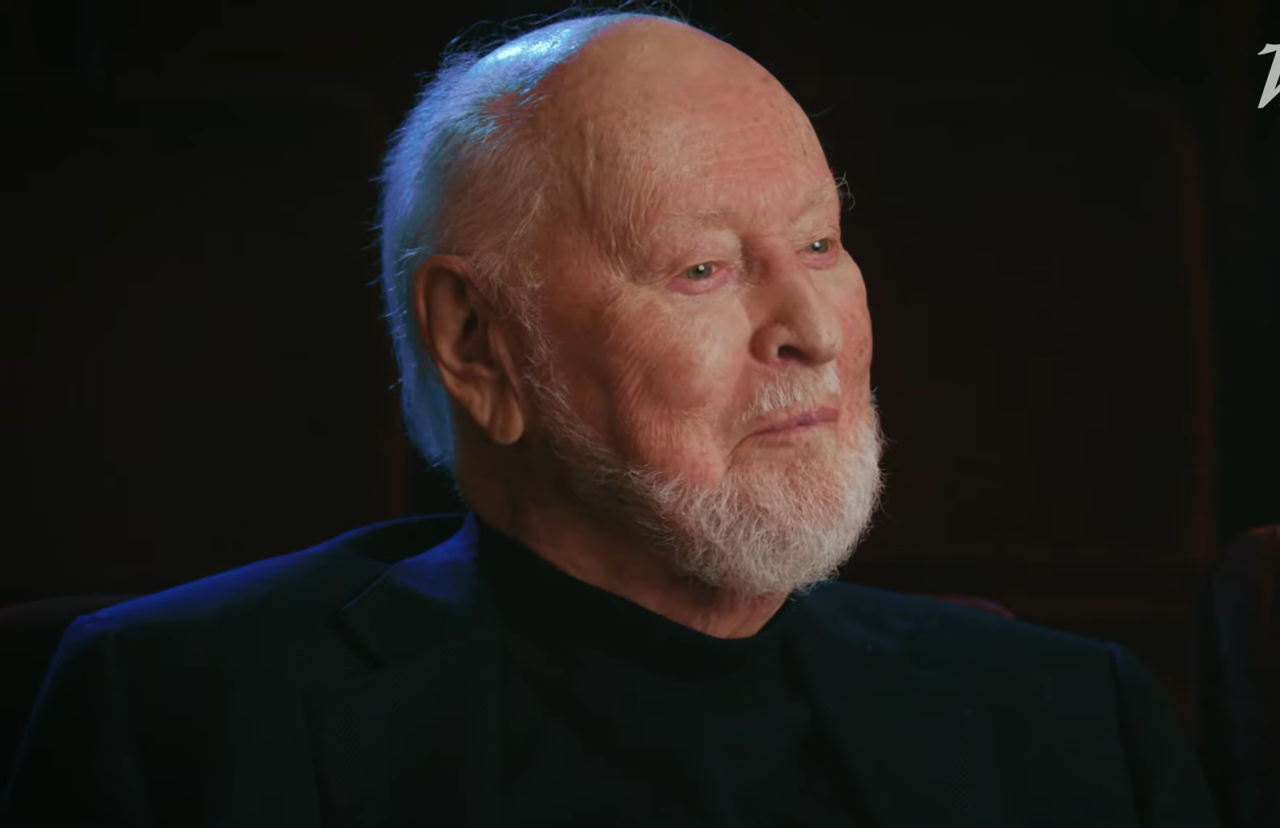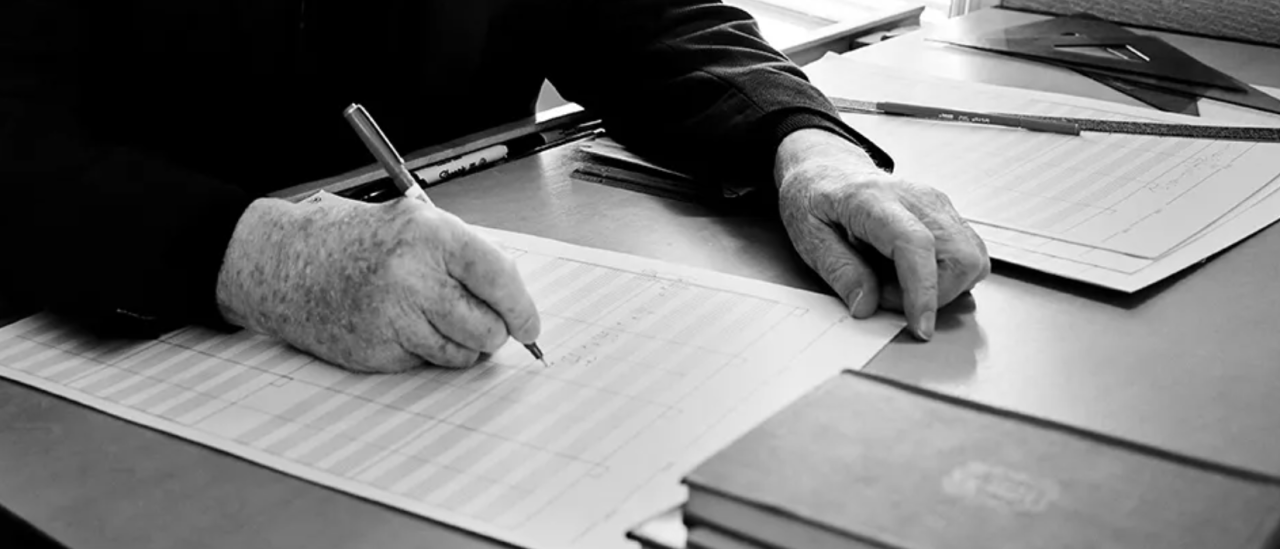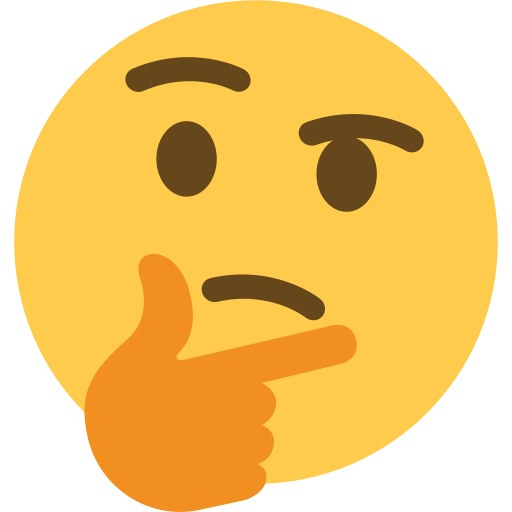-
Posts
740 -
Joined
-
Last visited
-
Days Won
18
Falstaft last won the day on July 8 2023
Falstaft had the most liked content!
Contact Methods
-
Website URL
franklehman.com
Profile
-
Location
Tufts
Recent Profile Visitors
8,479 profile views
-
 Falstaft reacted to a post in a topic:
[GAME] Sheet music extract : find the score
Falstaft reacted to a post in a topic:
[GAME] Sheet music extract : find the score
-
Hehe, I knew the score as soon as I saw the [name redacted] theme in the horns, and remembered the specific cue from that fff low E in the fourth measure. Here's one, not too hard but not too easy either I think.
-
 Marc reacted to a post in a topic:
[GAME] Sheet music extract : find the score
Marc reacted to a post in a topic:
[GAME] Sheet music extract : find the score
-
-
 Falstaft reacted to a post in a topic:
The Definitive John Williams Plagiarism/Homage Thread
Falstaft reacted to a post in a topic:
The Definitive John Williams Plagiarism/Homage Thread
-
 Falstaft reacted to a post in a topic:
John Williams is becoming a Disney Legend
Falstaft reacted to a post in a topic:
John Williams is becoming a Disney Legend
-
 GerateWohl reacted to a post in a topic:
Anakin's Theme (2023 Revision)
GerateWohl reacted to a post in a topic:
Anakin's Theme (2023 Revision)
-
 The Lost Folio reacted to a post in a topic:
Anakin's Theme (2023 Revision)
The Lost Folio reacted to a post in a topic:
Anakin's Theme (2023 Revision)
-
 Manakin Skywalker reacted to a post in a topic:
Anakin's Theme (2023 Revision)
Manakin Skywalker reacted to a post in a topic:
Anakin's Theme (2023 Revision)
-
 Falstaft reacted to a post in a topic:
Anakin's Theme (2023 Revision)
Falstaft reacted to a post in a topic:
Anakin's Theme (2023 Revision)
-
 crumbs reacted to a post in a topic:
Anakin's Theme (2023 Revision)
crumbs reacted to a post in a topic:
Anakin's Theme (2023 Revision)
-
 MaxTheHouseelf reacted to a post in a topic:
Anakin's Theme (2023 Revision)
MaxTheHouseelf reacted to a post in a topic:
Anakin's Theme (2023 Revision)
-
 artus_grayboot reacted to a post in a topic:
"John Williams in His Adventure on Earth" - Biography by Tim Greiving
artus_grayboot reacted to a post in a topic:
"John Williams in His Adventure on Earth" - Biography by Tim Greiving
-
Well done! This, and the few measure that succeed it, is one of my favorite transitions in all of Williams.
-
 Falstaft reacted to a post in a topic:
[GAME] Sheet music extract : find the score
Falstaft reacted to a post in a topic:
[GAME] Sheet music extract : find the score
-
 Loert reacted to a post in a topic:
[GAME] Sheet music extract : find the score
Loert reacted to a post in a topic:
[GAME] Sheet music extract : find the score
-
LOVE IT: Here's a new challenge: can you identify where this comes from, based purely on its chord progression -- no melody!
-
 Marc reacted to a post in a topic:
[GAME] Sheet music extract : find the score
Marc reacted to a post in a topic:
[GAME] Sheet music extract : find the score
-
-
 BSOinsider reacted to a post in a topic:
NEW book by Frank Lehman - The Skywalker Symphonies: Musical Storytelling in Star Wars
BSOinsider reacted to a post in a topic:
NEW book by Frank Lehman - The Skywalker Symphonies: Musical Storytelling in Star Wars
-
 Falstaft reacted to a post in a topic:
The Legacy of John Williams (Website & Podcast)
Falstaft reacted to a post in a topic:
The Legacy of John Williams (Website & Podcast)
-
In case anyone is curious, an article I've written on Anakin's Theme, with a focus on the concert arrangement(s), is now up on The Legacy of John Williams page. Thanks to @TownerFan for the chance to share this work as part of his Prequel Scores at 25 Years Retrospective! Anakin’s Theme and the Musical Aftermath of The Phantom Menace: (https://thelegacyofjohnwilliams.com/2024/07/30/anakins-theme-essay/) I threw in some easter-eggs for old-school Williams fandom -- JWfan old-timers will hopefully appreciate the refernces to what the online community was up to back in 1999! Be sure to check out some of the hyperlinks. Archive.org is a miracle!
-
 Falstaft reacted to a post in a topic:
John Williams canceled concerts 2024
Falstaft reacted to a post in a topic:
John Williams canceled concerts 2024
-
 Falstaft reacted to a post in a topic:
Holdo's theme from TLJ deserves more
Falstaft reacted to a post in a topic:
Holdo's theme from TLJ deserves more
-
 Falstaft reacted to a post in a topic:
Holdo's theme from TLJ deserves more
Falstaft reacted to a post in a topic:
Holdo's theme from TLJ deserves more
-
Just watched. Abels and the music team do a really wonderful job capturing the underscoring style of the Prequels. And while I hear very few outright melodic quotes from Star Wars, one motif that pops up in the second episode will bring to mind a certain formula from Williams's 2002 scores for suggesting mystery.
-
It's definitely a challenge, given how frustratingly incomplete and jumbled the score's presentation is. I'm not approaching any of the 9 as if they need any special defending. But in the case of TROS, I do feel I can offer a small corrective to what I see as a kind of mistreatment of Williams's swan song, both by the filmmakers and (more vexingly to me) the general public. I doubt there will be an audiobook -- it'd be unprecedented if there were for this particular book series (the Oxford Music/Media line). Though who knows... with AI emulation these days, maybe someone could enter all the text in and have it read back to you in the voice of Ian McDiarmid! There certainly will be an online companion though that has lots of short clips and such on it. I'm sure I'll cite Kalinak's chapter somewhere, though it's not especially central to what I'm doing. I don't know Evensen's SW/Wagner work, though, trust me, that angle is something I've got plenty to say about. Particularly since I think a lot of the existing scholarly treatment of the Williams/Wagner connection is at best superficial. But the man is a black hole: get too close and he completely dominates whatever subject you thought you were writing about before. So I'm trying to take care to keep the focus on JW rather than him.
-
It's just amazing, isn't it? On one hand, I think "The Meld" as we all know from the film it is a masterpiece and one of the most skillful and effective musical climaxes in Goldsmith's filmography. (Which may be close to saying it's one of the most skillful & effective musical climaxes/payoffs in film, period!) On the other hand, the rejected cue is simply magnificent, and clearly works wonders with the scene.
-
Wow, thanks everyone! Obviously, the most important question to address is how I got those italics. Simple! https://lingojam.com/FacebookFonts As for the timeframe: I have over a year to hand in the finished manuscript, but my goal is to have it completed well before that. It's a big book, and publishing is a very slow process. But everything so far is proceeding as I have forseen... It's not a guide to the scores really, but something more holistic, with each chapter looking at cues from all three trilogies from some angle: musical referentiality, thematic transformation, concert arrangements, and so on. There will be a ton of music examples (all my own annotated transcriptions as usu.), hopefully presented in an accessible way that draws in people who can't read sheet music. I know notation and music-theory jargon can be intimidating, and I'm hyper-aware of the potential gatekeeping effect it could on an already niche readership. But at the same time, I think we can all agree this music warrants deep and serious analysis! It's a balancing act for sure... Alas, I don't have special access to recordings, and can't speak to official expanded album releases, as amazing as they would be! Incidentally: I don't see it trumpeted nearly enough on these boards but Chloé Huvet came out with a book on SW music (mainly the OT and PT) a couple years ago that is absolutely brilliant and similarly synthetic in approach. The book is in French, which limits the audience, but it's worth getting your hands on if only for the fantastic music examples and charts. The amount of insight in her prose is incredible too, and it's been a major source of inspriation to me.
-
This is true for every* single JW score -- his sketches are for all intents and purposes complete. Which is not to minimize the importance of the orchestrator in any way, just to say that their role is, in JW's words and their own, "stenographic." It is indeed unusual for a film composer to do this, but JW's not your regular film composer! *Caveat: There are instances of timesaver cues from scores like HP:COS, Indy 5, and some bits of the Sequels where the orchestrator's task is also one of adaptation of pre-existing JW music. We on this JWfan board like to worry disproportionately about these!
-
This is a hard one! My first thought was something from the Essay for Strings -- the rising octatonic sixteenth run and extremely chromatic, disjunct melody that follows is something that happens a lot in that piece, but never in exactly this way. Then I remembered that a certain cue starts with rising octatonic lines in several instrumental groups. Very tricky for not giving us the primary melodic line, @Manakin Skywalker!
-
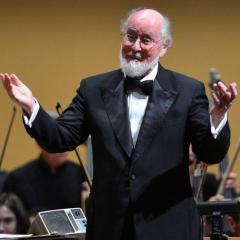
John Williams on Variety Cover (article & video)
Falstaft replied to JNHFan2000's topic in JOHN WILLIAMS
-

John Williams on Variety Cover (article & video)
Falstaft replied to JNHFan2000's topic in JOHN WILLIAMS


